Winners of the 2017 Manfred Lautenschlaeger Award for Theological Promise
The Awards Committee is pleased to announce the winners of the 2017 Manfred Lautenschlaeger Award for Theological Promise:
Davis Hankins (Emory University)
Liang Hong (University of Tübingen)
Katrin König (University of Tübingen)
T.J. Lang (Duke University)
Jennifer Newsome Martin (University of Notre Dame)
Eva Mroczek (University of Toronto)
Svenja Nagel (University of Heidelberg)
Xutong Qu (University of Heidelberg)
Frederick Tappenden (University of Manchester)
Sarit Kattan Gribetz (Princeton University)
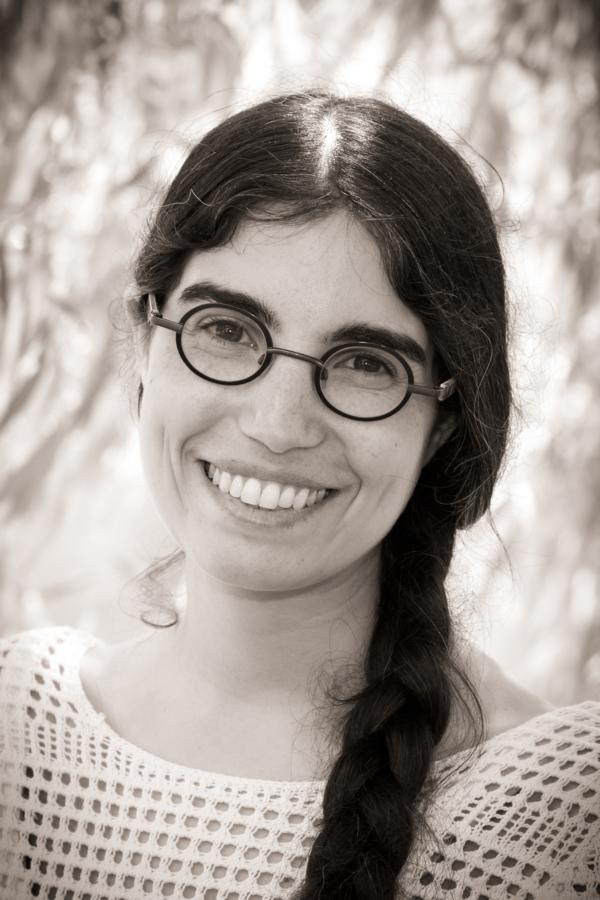
Award-Winning Work: Conceptions of Time and Rhythms of Daily Life in Rabbinic Literature, 200-600 C.E. (Ph.D. diss, Princeton University, 2013).
Current Position: Assistant Professor in the Theology Department at Fordham University, affiliated with the Program in Jewish Studies, the Center for Medieval Studies, and the Program in Women, Gender, and Sexuality Studies.
Current Research Activities:
I am currently working on a study of the literary dimensions of the Toledot Yeshu narratives, a set of popular satirical texts from the medieval period that tell the story of Jesus' life from a Jewish (and anti-Christian) perspective. The book will explore the broader intersections of polemic and parody; the literary and cultural consequences of inter-religious tension; and the history of Jewish representations of Christianity.
"God and Spirituality“ in the award-winning publication:
My dissertation examines how rabbinic texts from the first five centuries C.E. constructed individual, communal, and divine rhythms of time through the laws, rituals, and practices that they mandated. In the aftermath of the Jewish temple’s destruction – in the absence of regular temple worship and daily sacrifices – how did the rabbis reimagine the temporal rhythms of Jewish life and their relationship to God? My overarching argument is that, as the rabbis reconceived of Jewish life and theology, they used time to create and disrupt difference – between rabbis and Romans, men and women, heaven and earth. Though time appears to be universal, based on shared elements such as the rising sun, the phases of the moon, or the seasons, it is not. Different communities maintain different calendars and festivals, and groups and individuals within a single community interact with time in different ways, even when they look to the same temporal markers with which to anchor their days, nights, weeks, months, and years. I argue that, for the rabbis, such difference was constructed in communal terms, separating those in the Jewish community from those outside it; in gendered terms, dividing men from women within the rabbinic community; and in theological terms, distinguishing those who dwelled on earth from those in the heavenly divine sphere, including God and the angels.
Academic Address:
Davis Hankins (Emory University, Atlanta)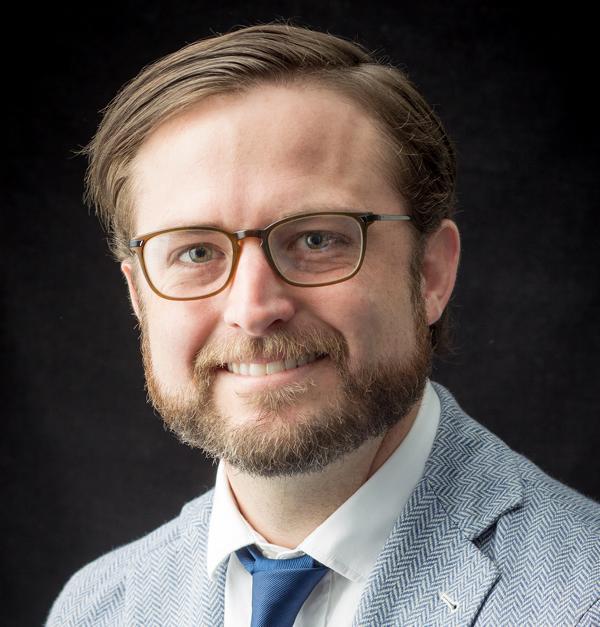
Award-Winning Work: The Book of Job and the Immanent Genesis of Transcendence (Diaeresis. Evanston, Ill.: Northwestern University Press, 2015).
Current research activities:
I am currently completing a commentary on Ecclesiastes and its reception history with Brennan Breed, which has led to a book on economic transformations in the Ptolemaic period and their consequences for the development of wisdom and apocalypticism in late Second Temple Judaism. My next monograph will advance my previous work on Job to map the intellectual developments of Second Temple Judaism's wisdom tradition by means of new conceptual resources from Continental philosophy and psychoanalysis.
"God and Spirituality“ in the award-winning publication:
I agree with most scholars that the book of Job intervenes in the wisdom tradition as a voice of critique. In fact, early Jewish wisdom literature includes nearly equivalent amounts of material from representatives of the tradition and counter-traditional voices. In the current cultural climate of increased interest in religious traditions across the globe as well as, especially in the West, sustained suspicion about religious communities and theological commitments, such a tradition sounds intriguingly resonant. Against conventional accounts of Job's critique of traditional wisdom, I argue that Job rejects the structuring basis for traditional wisdom theology in its axiomatic reference to divine transcendence. Job’s counter-theology is grounded instead in its insistence on divine immanence. Job’s immanent deity is the force that keeps his world and himself always open to transformation and without any sense of an external limit. My book thus raises as many if not more questions than proposals about spirituality. I argue that virtue-based approaches to spirituality seem rather inappropriate if not obscene in relation to Job’s experience of trauma, and I ask what sense of spirituality and ethics may respond more satisfactorily to experiences, like Job’s, that are grounded in disaster and trauma.
Academic Address:

Liang Hong (University of Tübingen)
Award-Winning Publication: Leben vor den letzten Dingen. Die Dostojewski-Rezeption im frühen Werk von Karl Barth und Eduard Thurneysen (1915-1923), (Vandenhoek & Ruprecht; Neukirchener, 2016).
Current Position: Assistant Professor of Systematical Theology at China Graduate School of Theology (Hong Kong); Adjunct Research Fellow at Institut for Religion and Legal Studies (IRLS), China University of Political Science and Law (Beijing).
Current research activities:
My current research is focused on the anthropology of Hannah Arendt, Carl Schmitt and Paul Tillich.
"God and Spirituality“ in the award-winning publication:
My dissertation, Leben vor den letzten Dingen (“Life before the Last Things”), is a genealogical study of Barth and Thurneysen's co-reading of the Russian novelist Dostoevsky and how it relates to their attempt of overcoming the tendency toward a subjectivist Christian theology and spirituality in modern times: not the self-reflective subject, but only the God of the Hereafter can be understood as the basis of Christian spirituality. This intended change of discourse leads them to discover the constructive meaning of eschatology for a new type of spirituality, which can be named “life before the last things”. According to the two theologians, Dostoevsky and his literary characters are the spokesmen of this new spirituality. In their selective perception of Dostoevsky’s literary world, Thurneysen and Barth develop an existential exegesis of God's Sovereignty over human life, which forms the core of their reformist teaching.
Academic Address:
E-Mail: liang.hong@cgst.edu
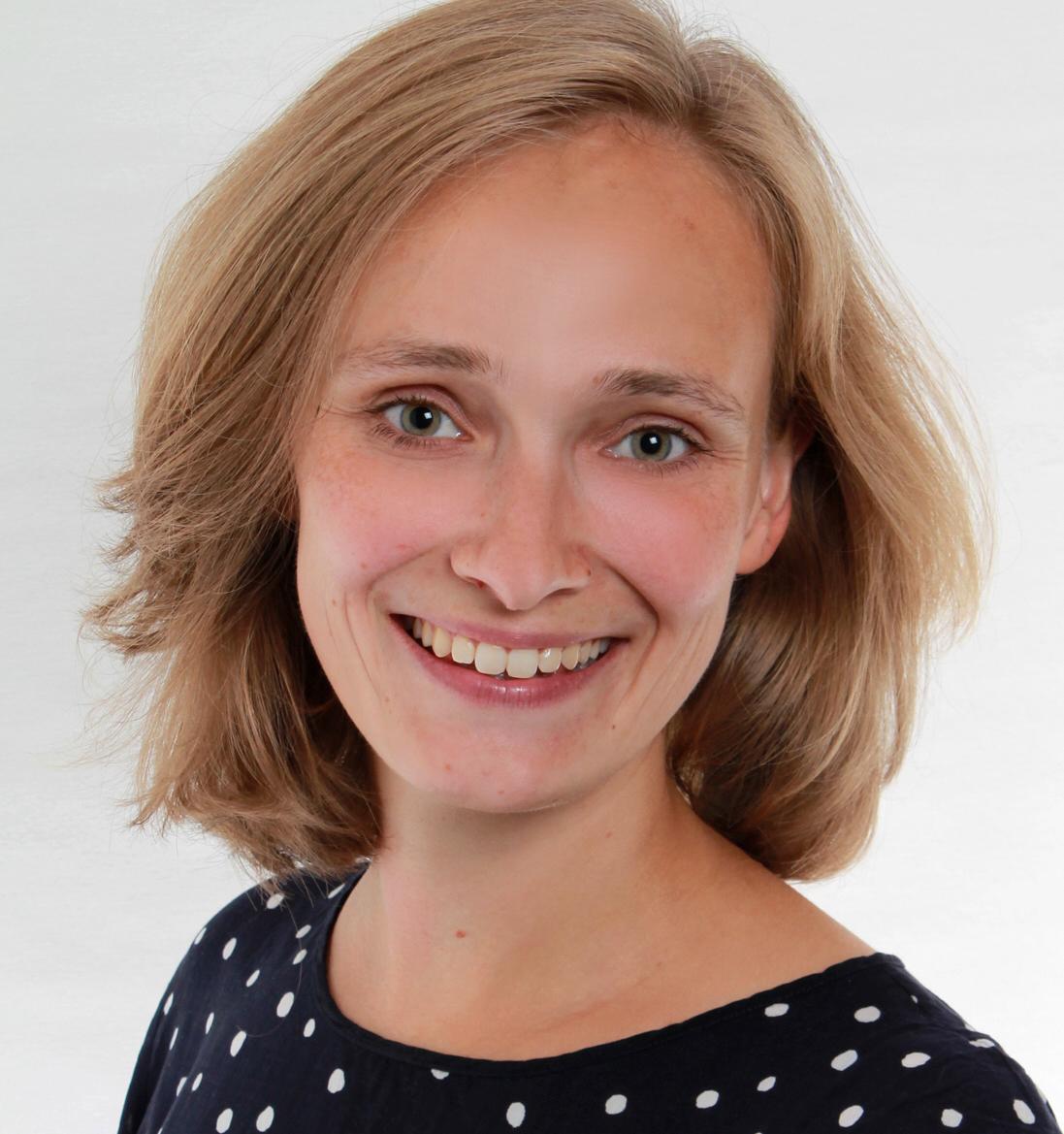
Katrin König (University of Tübingen)
Award-Winning Publication: Begnadete Freiheit. Anselm von Canterburys Freiheitstheorie (Tübingen: Mohr Siebeck, 2016).
Current Position: Right now I am working as Theological Assistant of the Bishop of The Protestant Church in Baden, Prof. Dr. Cornelius-Bundschuh. Beginning in April 2017 I will start to work as a Research and Teaching Associate (Wissenschaftliche Mitarbeiterin) at the Department of Protestant Theology at the University of Tübingen.
Current research project:
I am beginning to work on a second book (Habilitation) on the notion of divine presence. I wish to investigate exemplary theological and philosophical models which describe the presence of God in the world, to outline the implicated epistemology and to explore the cultural orientation they offer in relation to concrete forms of religious practice.
"God and Spirituality“ in the award-winning publication:
In the book „Gifted freedom“, I interpret Anselm of Canterburys theory of freedom in its theological and historical context and bring it into a dialogue with contemporary analytic theories of freedom. Thereby a qualitative concept of freedom as a gift towards the good is brought into the discussion: gifted freedom. According to this understanding, freedom is something greater than individual self-determination or choice between alternative possibilities. It is grounded in the perception of truth, unfolded in the love of justice and compatible with perfect determination by the presence of God. Such a compossibilist concept of freedom makes it possible to show, that God and human freedom are compatible, if God is the very ground and creative source of freedom and if human freedom is embedded into a spirituality of trust and of love to God and to one’s neighbour.
Academic Address:

T.J. Lang (Duke University)
Current Position: Dr T.J. Lang is currently Lecturer in New Testament at the University of St Andrews (St Mary's College, School of Divinity). He was previously Lecturer in New Testament Studies at Durham University.
Current Research Project:
"If ever you want to find out what a thing really is, entrust it to time" (Seneca, On Anger). My current research project tests Seneca's principle by tracing the development of Pauline exegetical practice in subsequent patristic and Medieval traditions, and particularly in the Medieval "four senses" tradition. The ultimate aim of the project is to recover Paul as an allegorical exegete by theorizing the literal, allegorical, moral, and eschatological senses of scripture on Paul's own terms.
"God and Spirituality“ in the award-winning publication:
Mystery and the Making of a Christian Historical Consciousness addresses the topic of “God and Spirituality” by examining the interrelationship of early Christian understandings of history, revelation, and self-identity. The book explores these issues by investigating appeals to “mystery” in the Pauline letter collection and then the discourse of previously hidden but newly revealed mysteries in second-century Christianity. The book demonstrates how the historical coordination of the hidden/revealed binary (“the mystery previously hidden but presently revealed”) enabled various figures beginning with Paul to ground Christian claims—particularly key ecclesial, hermeneutical, and christological claims—in Israel’s history and in the eternal design of God while at the same time accounting for their revelatory newness. This new and totalizing Christian historical consciousness would go on to have significant implications for conceptions of Christian identity and spirituality, particularly vis-à-vis Judaism.
Academic Address:
St Mary's College
South Street
St Andrews

Jennifer Newsome Martin (University of Notre Dame)
Award-Winning Publication: Hans Urs von Balthasar and the Critical Appropriation of Russian Religious Thought (University of Notre Dame Press, 2015).
Current Position: Jennifer Newsome Martin is an assistant professor in the Program of Liberal Studies (Great Books) with a concurrent appointment in the Department of Theology at the University of Notre Dame.
Current Research Project:
A systematic and historical theologian, Jennifer Newsome Martin focuses on 20th century Roman Catholic theology, particularly Trinity and eschatology, the religious character of modern philosophical thought, especially in the German Idealist and Romantic traditions, theological aesthetics, religion and literature, and the nature of tradition. She is currently working on a new book provisionally titled Poeticizing Tradition: A Literary Genealogy of Ressourcement Theology.
"God and Spirituality“ in the award-winning publication:
While Hans Urs von Balthasar and the Critical Appropriation of Russian Religious Thought is a rigorous study of the relationships of influence between various philosophers and theologians in the nineteenth and twentieth centuries, the broad trajectory that animates the entire argument is a recommendation of a pneumatological theological method. Critically appropriating Schelling through his Russian interpreters provides a spiritual counterpoint to an over-valuing of discursive rationalism in philosophical and/or theological discourses. Moreover, in its invocation of Origen as methodological type, the book allows an ecclesially situated approach to theology that privileges a contemplative vision of God. Balthasar valorizes Origen precisely for his profile as a Johannine theologian captivated with love for the Logos, and, relatedly, his connection of an authentically Christian gnosis that relates the disciplina arcani with personal and ecclesial holiness, where pistis (faith) and gnosis (knowledge) are reciprocal rather than antagonistic categories.
Academic Address:
Eva Mroczek (University of Toronto))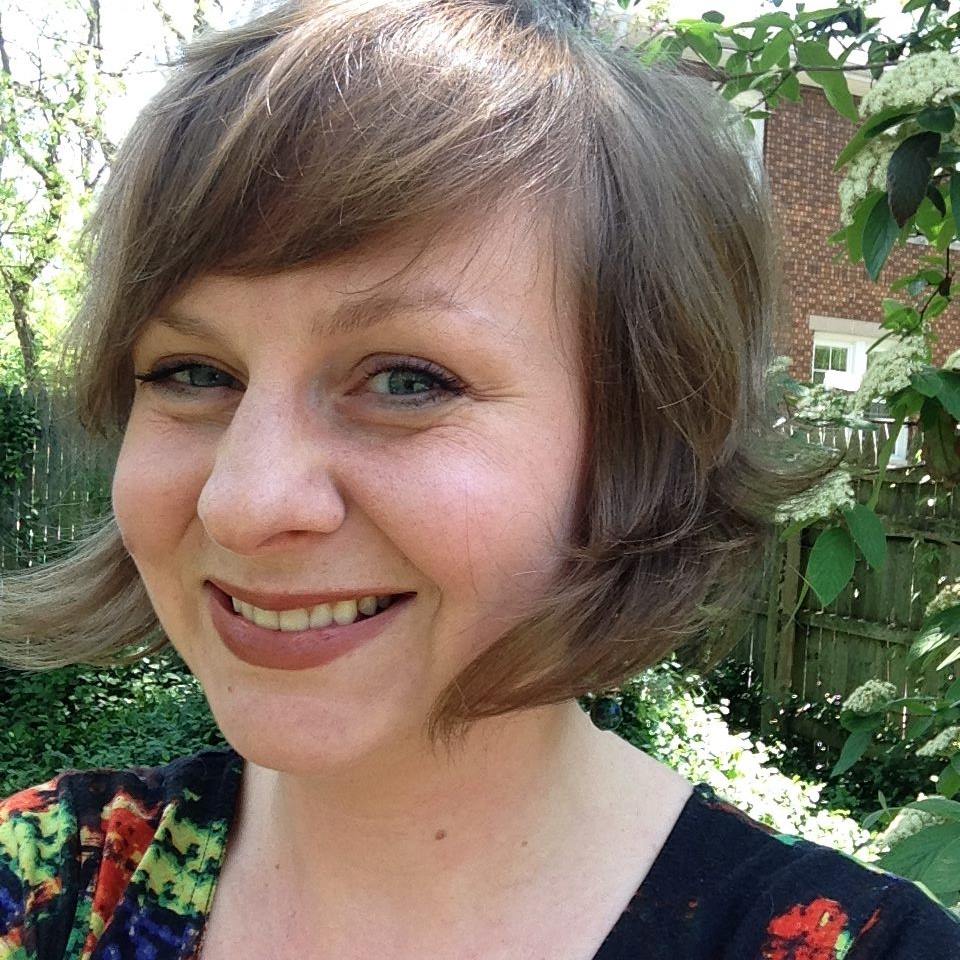
Current Position: Eva Mroczek is Assistant Professor of Religious Studies at the University of California, Davis.
Current Research Project:
Her current project, The Secret Lives of Texts: Hiding and Finding the Biblical Past, considers ancient and modern narratives about the discovery of ancient manuscripts, and investigates what such discovery stories reveal about how people imagine and encounter the biblical past.
"God and Spirituality“ in the award-winning publication:
The discovery of the Dead Sea Scrolls revealed a world of early Jewish writing larger than the Bible: from multiple versions of biblical texts, to “revealed” books not found in later canons. But though sacred writing did not have a stable essence or boundaries, it was taken seriously as the medium of God's communication with Israel. How do we imagine a commitment to the idea of revealed writing without a fixed canon? What would a Jewish text-based spirituality look like before the Bible? Listening to the ancient writers themselves, this book tells a story about how early Jews imagined sacred text before it was bound in a Bible. We see an imagined repertoire of texts found in multiple locations, and only partially present in available scribal collections. Perhaps the sacredness of writing in the pre-canonical imagination depends, in part, on this very proliferation and elusiveness, a refusal to stand still—a concept of revelation that stands in contrast with a more familiar theological idea of the Bible as the complete, available, and eternal divine source. Instead, divine revelation was seen as dynamic, unbounded, larger than any set of texts. Presenting ancient concepts of sacred text that do not assume fixity or containment, The Literary Imagination opens new possibilities for imagining scripture and revelation in surprisingly diverse ways in the history of religions.
Academic Address:
Svenja Nagel (University of Heidelberg)
Award-Winning Work: Die Ausbreitung des Isiskultes im Römischen Reich: Tradition und Transformation auf dem Weg von Ägypten nach Rom. Eine Untersuchung zur Entwicklung des Isiskultes im griechisch-römischen Ägypten und zu seiner Adaption in Rom und dem westlichen Mittelmeerraum, (Diss. Univ. Heidelberg 2015; Wiesbaden: Philippika, forthcoming),
Current Position:
At the moment I am a freelance research associate (Freie Mitarbeiterin) in the Department of Egyptology of Julius-Maximilians-University Würzburg, and Associate Member of the Cluster of Excellence “Asia and Europe in a Global Context: The Dynamics of Transculturality” of the University of Heidelberg (project MC 10 “The Magic of Transculturality”).
Current Research Activities:
Together with my colleague from Heidelberg, Dr. Ljuba Bortolani, I am preparing a monograph on the divination rituals of the Greek and Demotic magical papyri from Roman Egypt. Furthermore I am doing epigraphical work in the Egyptian temple of Edfu, under the direction of Prof. Dr. Martin Stadler, University of Würzburg.
"God and Spirituality“ in the award-winning publication:
My PhD-thesis is concerned with the development, transfer and adaptation of the cult of the Egyptian goddess Isis in the Western Mediterranean. A main focus of the work is the theological concept of the goddess and the changes it underwent in- and outside Egypt under the influence of different cultural traditions and agencies. The present work demonstrates that the conceptualization of this deity and its cult is highly dependent on local and individual needs and circumstances, but at the same time its consistency and continuity with its original theology in Egypt can be asserted. A central question tackled throughout the study is if, and how ‘foreign’ deities, religious ideas and objects can be ‘authentic’ in a new context, how they are integrated into new systems and patterns (e.g. iconography, social structures, philosophical worldviews) and in which way this integration is meaningful and shows understanding of the original significance and context. The encounter of ancient cultures with (originally) foreign deities and their creative methods of adaptation and integration present an instructive example that should also be of interest for the study of related phenomena in present times.
Academic Address:
Universität Heidelberg
Ägyptologisches Institut
Marstallhof 4
69117 Heidelberg
Xutong Qu (University of Heidelberg)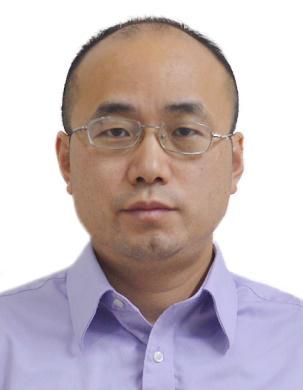
Current Position: QU Xutong is currently Associate Professor of Philosophy and Religious Studies at School of Philosophy, Beijing Normal University in Beijing. He acts as the Director of Institute of Religion and Culture in the school, and teaches philosophy, religious studies and theology.
Current Research Project:
A long term research project about Karl Barth’s Theology as a “Theologie des Gleichnisses”; The Goethe-Reception in the modern German intellectual history, especially in in the year of 1932.
"God and Spirituality“ in the award-winning publication:
John Wolfgang von Goethe is one of the most influential “poets and thinkers” in German intellectual and cultural history. Karl Barth is a German speaking Swiss theologian who is estimated as a “church father of the 21st century”. This book is the first attempt to elaborate on Barth’s Goethe-reception both historical-genetically and systematical-theologically, in order to understand and explain the theological development of Barth, especially the early Barth, from a new and dialectical perspective.
Due to its research object and context, this book is an interdisciplinary project, which belongs to the field of Christian theological studies, and is deeply related to the field of German and literary studies. Therefore, this book has special relevance to the topic “God and Spirituality” (broadly understood), which the prestigious Manfred Lautenschlaeger Award for Theological Promise wants to promote.
Academic Address:
Frederick Tappenden (University of Manchester)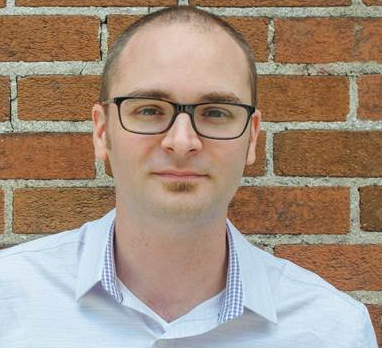
Award-Winning Work: Resurrection in Paul: Cognition, Metaphor, and Transformation (Atlanta: SBL Press, 2016).
Current research activities:
My next monograph — provisionally titled, The Interpreted and Interpreting Body: Soundings of the Somatic in Early Christian Creativity — focuses on issues of remembrance and interpretive creativity. This study draws out the body thematic and its development within discourses of gender and sexuality, scriptural interpretation, ethnicity, and ritual in the Pauline tradition (ca. 60–300 CE).
"God and Spirituality“ in the award-winning publication:
In Resurrection in Paul: Cognition, Metaphor, and Transformation I examine the ways that antique peoples conceptualise and configure the divine, the ways they articulate their theological visions, and the ways they imagine divine-human interactions. Notions of resurrection and the permeability of death are central to this exploration. My study focuses on ancient Judean writings, particularly those associated with the apostle Paul and his Christ-believing communities. I demonstrate that metaphors of death and life function as performative scripts that frame how Paul and his Christ-believing communities engage both God and the world. Paul’s vision of death’s porosity creates the theological and somatic potential for life in Christ. Accordingly, resurrection is understood as a dynamic process of spiritual engagement with God; by mapping life and death to the Christ-believing body, resurrection acquires a very concrete and embodied sense. The outcomes reached in this study ultimately concern the mechanisms and processes—both cognitive and somatic—through which human beings encounter, perceive, and fashion the divine.
Academic Address:

